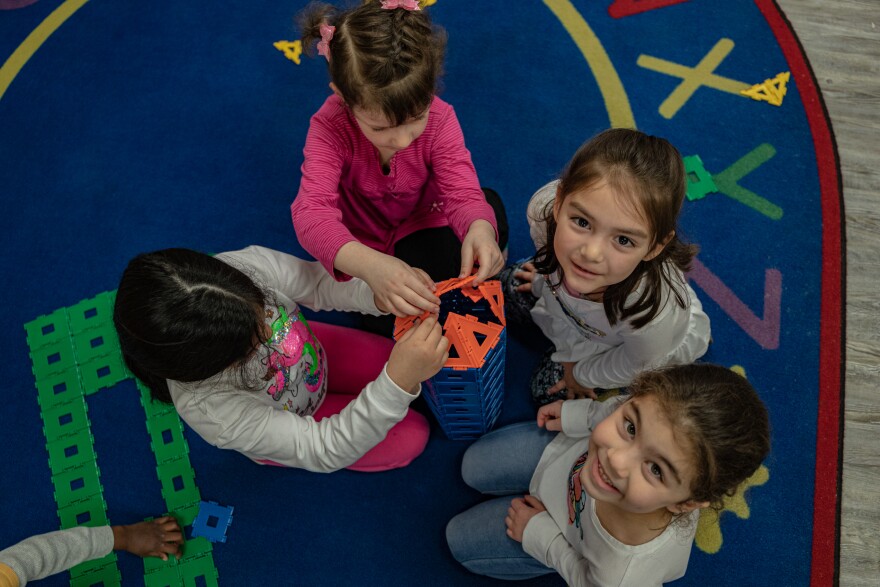In a couple of weeks, Escambia County residents will get a chance to weigh in on a proposed ballot initiative that would establish a dedicated tax totaling nearly $8 million annually to fund a Children’s Services Council known as the Escambia Children’s Trust.
Supporters of the initiative are asking the Escambia County Commission to approve a referendum on this year's November 3 General Election ballot that would authorize levy of a half-mill in property tax for 10 years to pay for a variety of children’s services and establish the Escambia Children’s Trust to oversee distribution of the funds.
A public hearing on the issue will be held during the July 2 regular board meeting.
“Escambia is doing not very well for its children,” said Achieve Escambia Executive Director Kimberly Krupa, beginning to make the first official pitch to commissioners at their Committee of the Whole meeting last week.
“We’re currently ranked 47th out of 67 counties on what’s called the Florida Child Well-Being Index. And that’s a roll up of 16 indicators ranging from child abuse to juvenile arrest. We’re trending in a down direction, having been at 41 in 2018.”
Escambia ranks fourth in Florida in how the number of juvenile arrests and has a chronic problem with middle school retention, which eventually has a negative effect on high school graduation.
A graph shown to commissioners indicated that 3.1% of Escambia middle school students were not promoted in 2017, compared to 1.8% in the state, 1.1% in St. Lucie and 0.6% in Martin.
However, Krupa says this is a story that can change with establishment of a special taxing district dedicated solely to funding a wide range of children’s services aimed at improving their overall health, wellness and educational attainment.
She says Florida lawmakers cleared the way independent taxing authority by voter referendum and administrative councils back in the 1980s.
“This was written into state statute, passed in 1986,” Krupa said. “And, it was a unanimous endorsement from our state legislature at that time who recognized that Florida under-invests in its children and pays long-term consequences economically as a result of that underinvestment.”
Born out of concerns about suicide, juvenile delinquency, and child abuse and drug abuse, there are currently nine ballot-created Children’s Services Councils in Florida, including the oldest in Pinellas County, the newest in Alachua. A 2020 vote is pending in Leon and possibly Escambia.
“The oversight structure is aggressive,” Krupa said as she laid out the makeup of the council. It would consist of ten local members, including five sitting positions and five appointed by the governor, based on recommendations from commissioners..
“Then, the five-sitting members being a board of county commissioner, school board member, superintendent of schools, a juvenile judge, and then the district administrator for the Department of Children and Families, which would be Circuit One in our case.”
Additionally, Krupa says there’s a rigorous process for evidence-based program evaluation and there are lots of checks and balances, “Quarterly financials and quarterly reporting to you as county commissioners and also to the public, annual program reports, and, of course, subject to all Sunshine laws.”
The idea for a Children’s Services Council, to be known locally as the Escambia Children’s Trust, began to take root and develop community backing last year. Several prominent supporters came with Krupa to help make the case. One of them was Jennifer Grove from Baptist Healthcare.
“The Escambia Children’s Trust will bring together partners from across sectors to build a long-term strategy that truly represents the vast needs of the children in our community. It will also implement the accountability systems that ensure that we’re moving the needle for all kids in this county,” Grove explained.
“We’re going to spend these tax dollars as taxpayers, one way or another. Let’s invest them early to ensure that pathway to prosperity for all of our children in this county.”
“There is no lack of need in our community with children,” added District 1 Commissioner Jeff Bergosh, a former Escambia County School Board member, expressing his willingness to support putting the initiative on the November ballot.
“It will be an issue that could be contentious, not unlike the appointed superintendent,” he said. “But, I feel as a county commissioner and as a board, we have the obligation when this sort of thing is brought forward to us, it’s our responsibility to move it forward and let the citizens decide.”
“In principle, it’s a great idea,” added District 3 Commissioner Lumon May. “I’m always looking at what can we do for youth development, what can we do for juvenile delinquency prevention, what can we do for early learning.”
May also noted the current civil unrest and the ongoing, systemic problems of generational poverty, family instability, and other issues, particularly for African-American children and families. He says his support for the Escambia Children’s Trust hinges, in part, on having this segment of the population represented throughout the process.
“As long as we take the resources and we apply them where they really need to be. And, I can tell you that the collateral promotional materials to market this tax, that same diversity should be the recipient of the action and then those who sit in the position of allocating those funds should also reflect the same demographic reflection.”
At this point in the process, only District 2 Commissioner Doug Underhill has expressed opposition to putting the Children’s Trust referendum on the ballot, saying he would never support a dedicated fund-line with taxpayer dollars.
After hearing from the public, the board decide to put the matter before voters at their July 2 meeting.
If the referendum makes to the ballot and wins voter approval, the levy would take effect in the 2021-2022 property tax year and would cost homeowners an average of $40 more per year.


